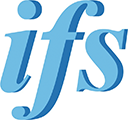
![[Translate to English:] [Translate to English:]](/fileadmin/_processed_/1/3/csm_DSCN7868_1c2ff3ffee.jpg)
When designing steel structures according to DIN EN 1090, the measurement of hardness is part of the standard-compliant component testing. An upper hardness limit value is prescribed for the generation of thermal cut surfaces on higher and high-strength steels, which must be observed for free cut surfaces exposed to fatigue and sensitive to cold cracking. However, the manufacturers' general procedure test for checking the hardness value is very imprecise when preparing the cut surfaces. Due to the great metrological challenges, there is a demand for new methods to determine and verify the quality characteristics of the surface layer on thermal cut surfaces in accordance with DIN EN 1090. The primary goal of the project is to define models and substitute heat sources with the help of numerical simulation in order to map the cutting process and calculate the characteristic parameters of the surface layer condition, for example, hardness and residual stresses. For this purpose, a systematic determination of the surface layer condition is carried out, the characteristic values of which are subsequently compared with the results of the numerical simulation. By means of fatigue strength tests the respective interrelationships are worked out, taking into account different cut edge conditions as well as post-treatment methods and including different materials. The influence of individual characteristics is to be explicitly investigated separately. The recommendations regarding the numerical simulation of the cutting process are directly applicable wherever welding structure simulations are already carried out. By the intended recommendations for the appropriate consideration of the surface layer condition of thermal cut surfaces in the strength assessment of components, a basis for decision-making is created, especially for SMEs, on the basis of which the structural design can be made more economical.